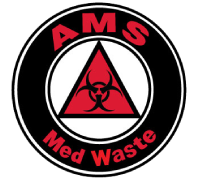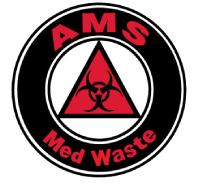As we heighten our environmental awareness, we recognize medical waste management as a crucial responsibility. Traditional practices allow vast amounts of waste from hospitals, clinics, and laboratories to end up in landfills or incineration plants. These practices contribute to pollution and pose health risks. However, a promising shift in waste management is on the horizon that recognizes potential where others only see problems. This article explores the innovative practice of transforming medical waste into fuel—a sustainable solution that diminishes environmental harm and creates a valuable resource. Continue reading to understand how this process works, its benefits, and how you can join us at AMS MedWaste in championing a greener tomorrow.
The Consequences Of Traditional Disposal Methods
Traditional ways of disposing of medical waste, including landfilling and incineration, inflict substantial damage to our environment and health. When we use landfills as repositories for medical waste, they are a potential threat to adjacent soil and water bodies. This contamination may disrupt local ecosystems and pose a risk to public health, with contaminated substances potentially infiltrating our food and water supply. The risks with contamination are minimized by proper disinfection prior to landfill deposit but it is still not the ideal answer.
Simultaneously, incinerating medical waste contributes to air pollution. This act discharges harmful pollutants into our atmosphere, such as carcinogenic dioxins and furans. Moreover, the ash residue that remains after incineration may still house dangerous substances, demanding further treatment before we can dispose of it safely.
These methods aggravate the global waste management issue. As medical waste grows, so does the pressure on our already overtaxed waste disposal systems. The frequent response is the unsustainable creation of more landfills and incineration plants to accommodate the increased demand.
Given these challenges, the urgent need for inventive and sustainable alternatives is clear. One such alternative is converting medical waste into fuel. This process guarantees responsible waste disposal and produces a valuable resource, thereby contributing to a circular economy.
A Sustainable Solution: Converting Medical Waste Into Fuel
Several innovative solutions for sustainable medical waste management are being developed to address these challenges. One such groundbreaking solution is the conversion of medical waste into fuel. This process ensures responsible disposal of waste and generates a valuable resource.
The Conversion Process Explained
The conversion process starts with collecting medical waste, which encompasses sharps, chemicals, pharmaceuticals, and radioactive materials. Once collected, this waste undergoes sorting to remove non-combustible materials. The waste that remains then experiences a process known as pyrolysis. Pyrolysis simplifies complex waste into essential compounds, generating a mixture of gases, oil, and char. These gases and oil undergo further refinement to produce a high-energy liquid fuel.
This high-energy liquid fuel, born from the conversion process, effectively substitutes coal in cement kilns. This fuel possesses high energy content and burns cleaner than coal. Therefore, its usage results in fewer harmful substance emissions, leading to cleaner air.
The Benefits Of Converting Medical Waste Into Fuel
Environmentally Friendly:
Converting waste into fuel is a green alternative to traditional disposal methods like incineration or landfilling. It ensures complete consumption of medical waste and results in fewer emissions, contributing to cleaner air and a healthier environment.
Reduced Dependence On Fossil Fuels:
The high-energy liquid fuel from medical waste effectively replaces coal in cement kilns. This shift reduces our reliance on fossil fuels, aiding the global effort to mitigate climate change.
Economic Benefits:
The conversion process can stimulate local economies by creating waste collection, sorting, and conversion jobs. Additionally, it can lower healthcare costs by reducing waste disposal fees.
Disease Control:
Improper disposal of medical waste can lead to the spread of diseases. Public health is protected by destroying harmful pathogens during the conversion process.
Resource Generation:
This process changes our perspective on medical waste from being a problem requiring disposal to a valuable resource we can utilize. The fuel created can energize various processes, transforming a waste product into a valuable asset.
Contribution To A Circular Economy:
Converting medical waste into fuel contributes significantly to a circular economy. In a circular economy, resources are kept in use for as long as possible, with the maximum value extracted from them while in use. When a product ends its life, its materials are re-purposed and introduced back into the cycle rather than discarded as waste.
By converting medical waste into fuel, we are repurposing what was once considered waste into a valuable resource. This process reduces the volume of waste in landfills and decreases our dependence on fossil fuels. It creates a closed-loop system where waste is continually cycled back into productive use, thus reducing our environmental footprint.
Join Ams Medwaste In Paving The Way For A Greener Tomorrow
Are you ready to be part of the solution? At AMS MedWaste, we are committed to transforming the medical waste management sector through innovative, sustainable practices. We believe in the power of change and dedicate ourselves to turning the challenge of medical waste into an opportunity for a greener, healthier planet. Join us as we work towards a future where medical waste is not just discarded but converted into valuable fuel. Together, we can redefine waste management and pave the way for a sustainable future. Contact us today to learn more about our services and how you can contribute to this critical mission.






